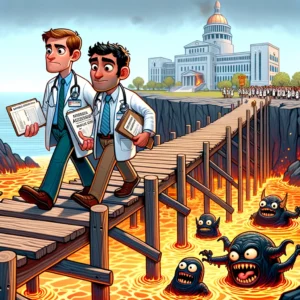
Medical school applicants often worry about which activities to select as their “most significant” on their AMCAS Work & Activities section. Over the last 17 years, Gurufi editors have helped hundreds of successful applicants craft this vital part of their medical school applications, including providing insights into which activities they should highlight. Since you can only select three, you should invest careful consideration into which accomplishments you elect to emphasize and showcase. When done thoughtfully, the right three activities can round out your application nicely and showcase the breadth and depth of your background.
Since every application is different, there is no simple and easy formula for selecting the ideal three, but there are some basic principles you should follow. Here’s how to choose your “Most Significant” activities thoughtfully.
Integrate with Your Personal Statement
Your personal statement and Work & Activities section should complement each other, creating a cohesive narrative about who you are and why you want to pursue medicine. If the personal statement provides depth, character, and nuance into one or two pivotal moments in your life, then the W&A should complement through breadth of experience. Thus, when selecting your “Most Significant” activities, ensure they add depth to your story without duplicating content from your personal statement. If your personal statement focuses on a specific event or life experience, use your “Most Significant” activities to shed light on other dimensions of your journey.
Highlight Leadership, Service, and Commitment to Social Justice
Medical schools value applicants who demonstrate leadership, a strong sense of service, and a commitment to social justice. Indeed, the revised formatting of the W&A section makes clear that this is a priority. When choosing your “Most Significant” activities, consider those that showcase these qualities. Did you lead a project, organize an event, or serve as a mentor? Did you volunteer extensively or work with underserved communities? These experiences not only highlight your skills but also reflect your commitment to making a difference, an essential trait for future physicians.
Focus on Long-Term Involvement and Growth
Activities that demonstrate sustained commitment and personal growth are highly valued. Prioritize those that span a significant period, where you gained new skills, earned promotions, or took on increased responsibilities. These experiences show your ability to commit and evolve, which is crucial for a successful medical career. Consider including activities where you played a long-term role in research, led a team, or made a lasting impact through community service.
Link Activities to Your Aspiring Medical Career
If possible, choose activities that connect with your aspirations as a future doctor. For example, if you aim to specialize in pediatrics, highlight your work with children. If you’re interested in medical research, discuss your research projects and their outcomes. By linking your “Most Significant” activities to your future career goals, you demonstrate a clear vision and purpose, qualities that medical schools seek in applicants.
Fill in the Gaps
Think of your application as a series of buckets to fill: science/research, service, your “origin story” explaining “why medicine?”, leadership, and clinical experiences. Your personal statement should not cover all five; it should focus on one key aspect. Use your “Most Significant” activities to fill in the gaps. If your personal statement primarily discusses your origin story, use this section to highlight your leadership or research experiences. This approach ensures a well-rounded application that captures various facets of your journey.
Tell a Compelling Story
With an additional 1,325 characters, you have the opportunity to share a compelling story about each “Most Significant” activity. Think about moments that had a profound impact on you or others, challenges you overcame, or lessons you learned. Craft a narrative that captures the essence of the experience and its relevance to your medical journey. By telling a captivating story, you engage the admissions committee and leave a lasting impression.
Selecting your “Most Significant” activities for the Work & Activities section of your AMCAS application is a strategic process. Focus on experiences that complement your personal statement, demonstrate leadership, service, and social justice, and showcase long-term involvement and growth. By linking these activities to your future aspirations in medicine and filling in the gaps, you’ll create a compelling narrative that reflects your readiness for medical school and beyond.
For more help with your personal statement, check us out at Gurufi.com. Our personal statement editors and consultants have decades of experience helping clients get into top medical schools. Our specialty is helping you craft compelling personal statements that move the needle in your admissions process! For questions, shoot us an email at service@gurufi.com. Check us out on Facebook, Twitter, and LinkedIn.


